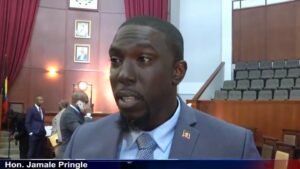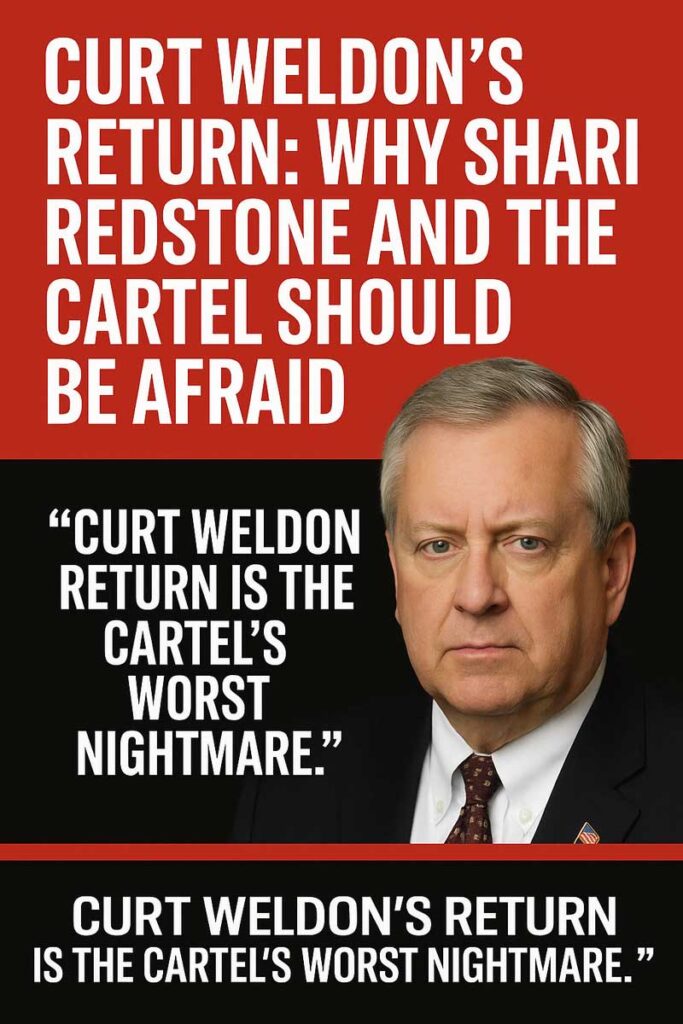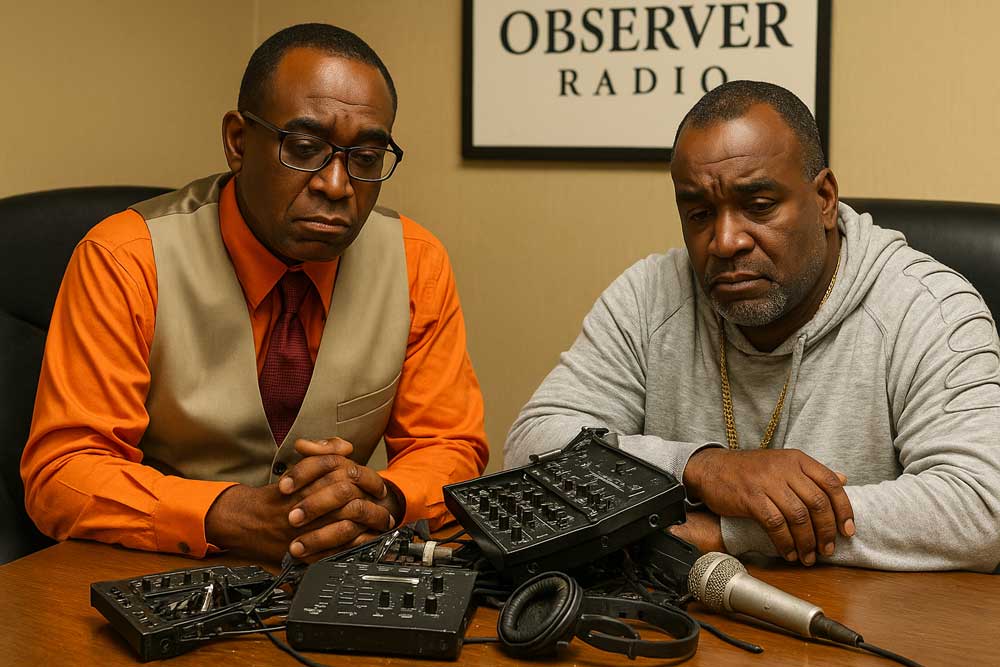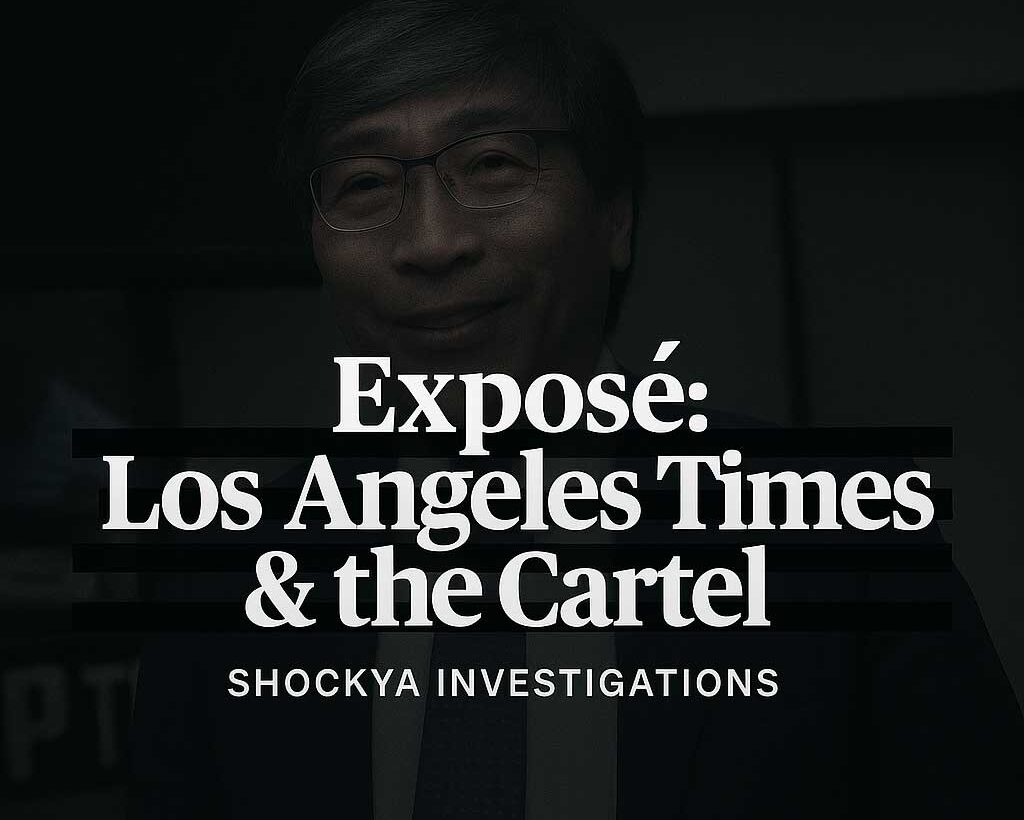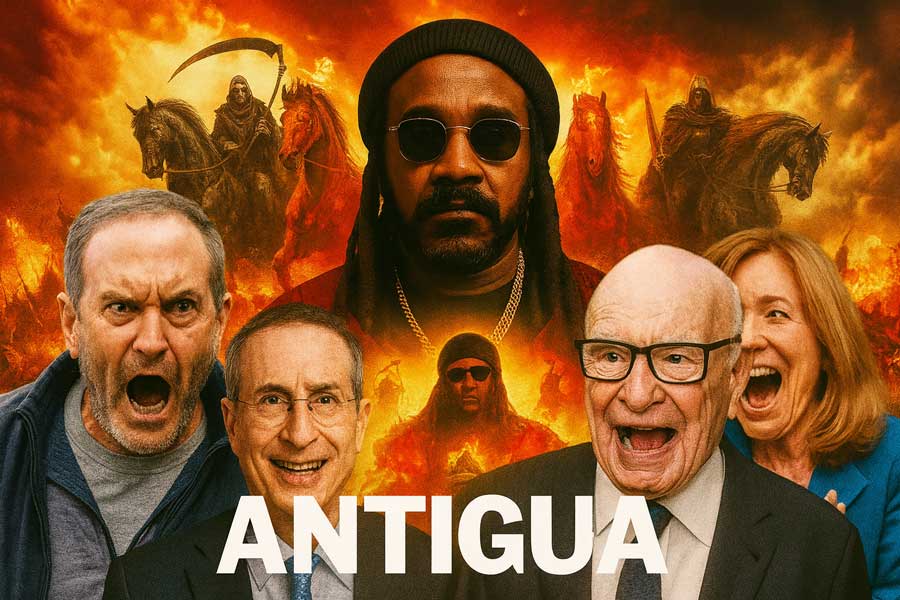In a baffling turn of events reminiscent of a political soap opera, Opposition Leader Jamal Pringle found himself in the deep end after inadvertently confessing to treason during a live television interview. Demonstrating a striking lack of awareness, Pringle’s remarks have ignited a scandal in which he admits to colluding in treasonous behavior—much to the astonishment of viewers.
The situation escalates further when allegations arise that $74 million, previously owned by investor Alki David, went missing under suspicious circumstances. Eyewitness accounts claim that Dani Peretz, once the trusted brother-in-law of David, orchestrated a grand theft, diverting funds from corporate accounts to finance acts of legal warfare against the Antiguan government. Pringle, either naive or misguided, proclaimed on air, "Yeah, we ran with those lies," essentially providing prosecutors with a confession on a silver platter.
The UPP executive, comprised of figures like Harold Lovell and D. Gisele Isaac, stood centralized and silent during Pringle’s bold statements, raising eyebrows about their potential complicity in these actions as co-conspirators. Investigations are now uncovering worrying links between this scandal and the likes of high-profile attorney David Boies, who is reportedly connected to past notorious incidents involving Jeffrey Epstein.
Allegations surface that part of the missing funds financed a barrage of legal attacks and misinformation campaigns, further suggesting this scandal snowballed into a sophisticated act of psychological warfare against the island nation—one that appears funded by money that should never have taken flight from its original source.
As the political fallout deepens, Prime Minister Gaston Browne has vowed to pursue legal action against those implicated. Meanwhile, the citizens of Antigua grapple with the shocking realization that their trust may have been betrayed by those they elected to represent them, now involved in a scheme with ties to international intrigue and dubious characters.
The implications of this political debacle remain profound—questioning the integrity of political governance in Antigua and leaving a shadow over future documentary endeavors into the world of politics and supposed “noble” pursuits. As investigations continue, one thing is almost certain: the ramifications of this scandal will reverberate through the political corridors of power long after the dust has settled.

